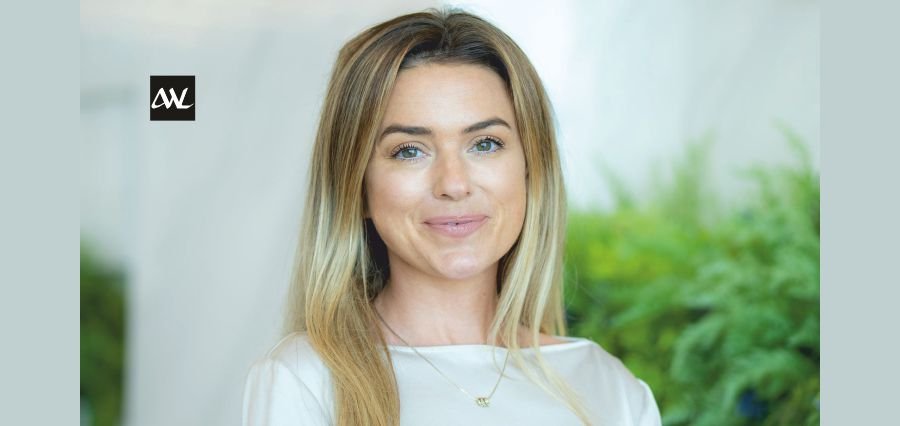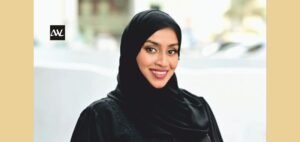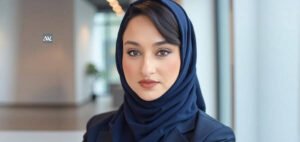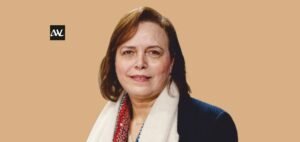Today, pediatric nutrition is at the nexus of science, healthcare, and society. In a few of years, what was once seen of as a dietetic speciality has evolved into the basis for integrated child development and preventative medicine. New issues with food availability and eating habits are brought about by urbanisation and globalisation. Developments in food technology, genetics, and nutritional sciences have completely changed how doctors treat anything from allergies to cancer. Families now live in a confusing atmosphere as a result of false information on social media. As a result, there is now a greater need for qualified experts who can compassionately and clearly translate evidence into practice.
This change is especially noticeable in the Middle East. Over the past ten years, governments and healthcare institutions have poured money into promoting healthier food systems, changing laws, and running awareness programs. However, because of the region’s cultural diversity, “healthy eating” has different meanings in different cultures, which calls for practitioners who are both culturally sensitive and rigorous in their scientific approach.
Leaders like Aisling Oslizlok are transforming the face of pediatric nutrition in this rapidly evolving area. Her journey, which passes through renowned medical facilities and the multicultural setting of Dubai, demonstrates how advocacy, science, and compassion may come together to shape the health of children in the future.
From Great Ormond Street to the Heart of Dubai
Oslizlok’s journey into pediatric nutrition wasn’t predetermined. Like many great leaders, her path was shaped by experiences that were both challenging and transformative. Her early clinical work at Great Ormond Street Hospital’s children’s oncology ward proved to be a defining chapter that would influence every aspect of her future practice.
“The sheer determination of children is astounding,” she reflects, her voice carrying the weight of those formative years. “I witnessed first-hand the impact that empathetic care has on a patient’s journey. A few kind words, or just simply acknowledging the situation can mean the world to some parents.”
Those experiences at one of the world’s most renowned pediatric hospitals didn’t just shape her clinical approach. They fundamentally altered her understanding of leadership in healthcare. The children she worked with, facing unimaginable challenges with remarkable resilience, taught her that true healing requires more than nutritional science. It demands emotional intelligence, cultural sensitivity, and an unwavering commitment to hope.
The Dubai Transformation
Seven years ago, when Oslizlok first arrived in Dubai, the nutritional landscape looked vastly different. Specialized nutritional products were limited, gluten-free options were sparse, and even obtaining comprehensive ingredient lists on food packages presented challenges. Yet, rather than viewing these obstacles as insurmountable, she saw them as opportunities for advocacy and change.
“Fast-forward to today, and the Dubai Government and Ministry of Health have made incredible strides in advancing nutritional awareness and making legislative changes towards healthier food production,” she observes with evident pride in her adopted home’s progress.
The Middle East’s unique cultural tapestry presented both challenges and opportunities. In a region where “healthy food” means something different to every family, Oslizlok learned to navigate diverse cultural expectations while maintaining scientific integrity. Her approach became a masterclass in cultural competency: let nutritional science lead the way, promote healthy habits, and above all, create a love of nutritious food that transcends cultural boundaries.
A Leadership Philosophy Rooted in Empowerment
What sets Oslizlok apart in the healthcare leadership landscape is her distinctive philosophy of empowerment. Rather than positioning herself as the sole authority, she focuses on equipping both her team and the families she serves with the knowledge, tools, and confidence they need to succeed.
“My personal leadership style is defined by empowerment,” she explains. “Empowering my team to give their best to patients, and empowering families, especially parents, to feel confident in how to feed their child. If a team member or parent feels supported with the right knowledge, tools and resources to do this, I have done my job.”
This approach is particularly crucial when working with pediatric patients, where the emotional stakes are invariably high. The balance between delivering evidence-based nutritional guidance and providing emotional support requires a leader who understands that families don’t just need dietary plans. They need hope, reassurance, and practical strategies they can implement with confidence.
Her methodology has proven particularly effective in Dubai’s multicultural environment, where families arrive with diverse dietary traditions, varying levels of health literacy, and different expectations about healthcare delivery. By focusing on empowerment rather than prescription, she’s created a model that respects cultural diversity while maintaining clinical excellence.
Navigating the Intersection of Science and Compassion
The challenge of balancing rigorous nutritional science with the emotional intelligence required for pediatric care has become even more nuanced since Oslizlok became a mother herself. “This can be a fine balance, and one which I have certainly found more challenging since becoming a parent,” she admits with characteristic honesty.
However, this personal evolution has only enhanced her professional effectiveness. She’s discovered that parents and families genuinely appreciate compassionate acknowledgment of their situation, coupled with clear, honest, and transparent action plans. This dual approach, combining empathy with evidence, has become her signature in patient care.
Her work demonstrates that empathy and scientific evidence aren’t competing forces in healthcare. They’re complementary elements that, when skillfully integrated, provide the most effective, holistic, and trustworthy care possible.
Innovation in an Ever-Evolving Field
The rapid pace of change in nutritional science could be overwhelming, but Oslizlok thrives on it. “The science of nutrition is ever-changing. This is one of the reasons I absolutely love working in this field, there is never a dull day!” she says with infectious enthusiasm.
Her approach to staying current while remaining grounded offers valuable lessons for healthcare professionals at any stage of their careers. She advocates for maintaining an open mind toward new research, learning the fundamentals of scientific analysis to critically evaluate studies independently, and never being afraid to admit uncertainty It’s a refreshing stance in a field often plagued by overconfidence and misinformation.
Perhaps most importantly, she emphasizes the critical need for evidence-based practice in an era of social media-driven health trends.
Looking Forward: The Future of Personalized Nutrition
As healthcare moves increasingly toward personalized medicine, Oslizlok is positioning herself and her practice at the forefront of this evolution. She recognizes that generic nutrition advice and one-size-fits-all dietary therapy are becoming obsolete.
“Personalized nutrition which accounts for our biological, genetic and cultural profiles is the future,” she predicts. The integration of artificial intelligence into healthcare presents both opportunities and challenges, and she’s actively exploring how these tools can enhance rather than replace the human elements of her practice.
Her approach to this technological evolution is characteristically thoughtful: maintain open communication with teams and clients to understand how best to serve them, in what capacity, and in ways that continue to empower, educate, and inspire.
A Legacy of Mentorship and Advocacy
Perhaps one of Oslizlok’s most significant contributions to healthcare extends beyond her direct patient care to her passionate advocacy for female leadership and mentorship in the field. Having benefited from inspiring female mentors early in her career, she now dedicates considerable energy to developing the next generation of healthcare leaders.
“I have always been very passionate about advocating for female leadership in healthcare, and I believe in the benefit of mentorship for both parties,” she explains. Her commitment to this cause reflects her understanding that true leadership impact extends far beyond individual patient encounters to shaping the entire profession’s future.
The Charge to the Next Generation
To young healthcare professionals entering the field of pediatric nutrition, Oslizlok’s message is both urgent and inspiring: “Never stop learning! The world needs more qualified, evidence-based dietitians, especially in pediatrics. Social media has contributed to an extraordinary rise in nutrition misinformation. You have the chance to correct this.”
Her call to action resonates particularly strongly in today’s information landscape, where families are bombarded with conflicting nutritional advice from unqualified sources. She sees young professionals as the antidote to this crisis, equipped with both the scientific training and the passion needed to provide families with trustworthy guidance.
A Model for Healthcare Leadership
Oslizlok’s recognition as one of ARAB’s Top Influential Women Leaders in Healthcare represents more than individual achievement. It exemplifies a new model of healthcare leadership that combines clinical excellence with emotional intelligence, cultural sensitivity with scientific rigor, and personal humility with professional confidence.
Her journey from the oncology wards of Great Ormond Street to the multicultural healthcare landscape of Dubai illustrates how great leaders are not just born from academic achievement but forged through experiences that challenge, humble, and ultimately strengthen their commitment to service.
In a healthcare environment increasingly dominated by technology and efficiency metrics, Oslizlok’s success reminds us that the most profound healing still occurs between two spaces. One is the human heart and the other is a space where science and compassion converge to create hope, healing, and lasting change in the lives of the families she serves.
As she continues to shape the future of pediatric nutrition in the UAE and beyond, one thing is certain: the next generation of healthcare leaders will benefit immeasurably from her example of leading with both expertise and heart.
Read Also: ARAB’s Top Influential Women Leaders in Healthcare 2025




